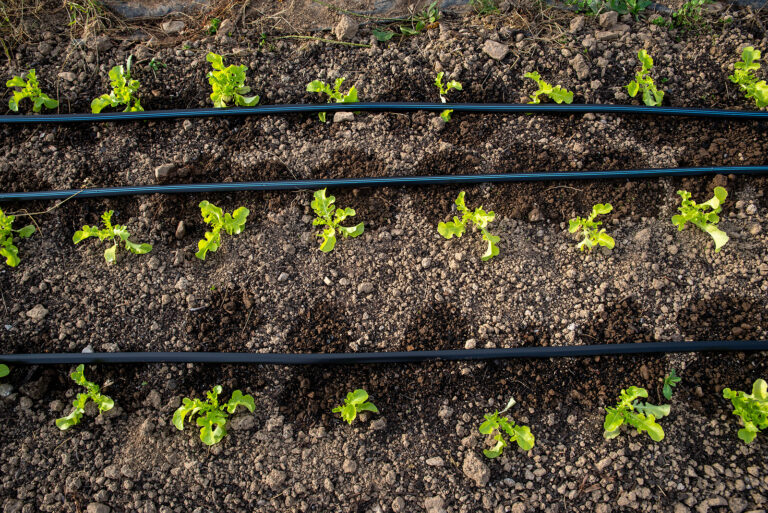Healing the Land and Ourselves: The Psychology of Regenerative Practice
Regenerative gardening is not just about plants and soil—it’s a practice that heals both the land and the gardener. Working with nature restores ecosystems while offering psychological benefits: stress reduction, mindfulness, a sense of purpose, and connection to life cycles. Over years of gardening experience, I’ve seen firsthand how regenerative practices foster resilience, empathy, and deep satisfaction in those who tend the land.
By engaging in regenerative gardening, we participate in a cycle of care: building healthy soil, nurturing plants, observing wildlife, and practicing patience and attention. These actions create a feedback loop that improves mental well-being while regenerating ecosystems.
The Psychological Benefits of Regenerative Gardening
- Connection to Nature
- Observing soil, plants, and animals strengthens awareness and appreciation.
- Mindful gardening reduces stress and improves focus.
- Sense of Purpose
- Contributing to ecosystem health and food production fosters meaning.
- Knowing that your actions regenerate land for future generations is empowering.
- Observation and Patience
- Gardening teaches attentiveness, adaptability, and problem-solving.
- Watching cycles of growth and decay nurtures patience and resilience.
- Physical and Emotional Health
- Gardening provides gentle exercise and outdoor activity.
- Working with soil microbes may even positively influence mood through microbial interactions.
- Community and Collaboration
- Sharing knowledge, harvests, and garden tasks builds social bonds.
- Collaborative regenerative projects strengthen empathy and teamwork.
Practical Ways to Integrate Psychological Benefits
- Start a garden journal to reflect on observations and feelings
- Practice mindfulness while planting, weeding, or watering
- Rotate crops and care for soil to see tangible results of your efforts
- Create spaces for pollinators, wildlife, and native plants to observe life cycles
- Share garden experiences with family, friends, or community groups
Regenerative Gardening & Psychology Cheat Sheet: Heal Land and Mind
Why Regenerative Gardening Benefits Mental Health
- Reduces stress and promotes mindfulness
- Builds connection to nature and life cycles
- Fosters purpose, resilience, and patience
- Encourages collaboration and community
- Creates satisfaction from nurturing ecosystems and food production
Key Psychological Benefits & Quick Tips
| Benefit | How It Works | Quick Tips |
| Connection to Nature | Observing soil, plants, and wildlife | Practice mindful observation; notice insects, flowers, and soil life |
| Sense of Purpose | Caring for ecosystems and future food security | Reflect on your role in regenerating land and supporting life |
| Observation & Patience | Learning cycles of growth, decay, and adaptation | Keep a garden journal; watch plants develop over time |
| Physical & Emotional Health | Gentle exercise, outdoor exposure, microbial interaction | Weed, water, or compost mindfully; enjoy movement in the garden |
| Community & Collaboration | Sharing knowledge, harvests, and garden tasks | Volunteer, garden with neighbors, or share produce and tips |
Practical Ways to Apply
- Journal your observations and reflections weekly
- Practice mindful planting, watering, or weeding
- Rotate crops and care for soil to see tangible results
- Create wildlife habitats and pollinator-friendly areas
- Share harvests and gardening experiences with your community
Regenerative Gardening Learning Hub
🌿 Start here: The Complete Guide to Regenerative Gardening and Farming
1️⃣ Soil Health and Living Systems
- How to Build Living Soil: A Step-by-Step Guide
- Understanding the Soil Food Web: Life Beneath Our Feet
- How to Use Compost and Vermicompost in a Regenerative Garden
- Mulching for Soil Health: How to Protect and Feed the Soil Naturally
- Using Mycorrhizal Fungi to Boost Plant Health and Yield
- Minimal Tillage: Why and How to Disturb the Soil Less
- How to Test, Read, and Rebalance Your Soil Naturally
2️⃣ Biodiversity and Polyculture
- How to Design Polycultures and Companion Plantings for Regenerative Gardens
- Integrating Native Plants into Your Food Garden
- Creating Habitat for Beneficial Insects and Pollinators
- Cover Cropping for Biodiversity and Soil Regeneration
- Crop Rotation for Soil Fertility and Pest Management
3️⃣ Carbon Sequestration and Organic Matter
- Why Capturing Carbon in the Garden Is Important and Fights Climate Change
- Increasing Soil Carbon with Compost, Mulch, and Deep Roots
- Biochar: What It Is and How to Use It in the Garden
- How to Keep Soil Covered Year-Round to Build Carbon and Fertility
4️⃣ Water Stewardship
- How to Use Water Wisely: The Principles of Water-Wise Regenerative Gardening
- Building Swales and Contour Beds to Slow and Sink Rainwater
- Mulch, Groundcovers, and Soil Structure for Water Retention
- Harvesting Rainwater for Regenerative Gardens
5️⃣ Perennial Crops and Permanent Systems
- How to Transition from Annuals to Perennials in the Vegetable Garden
- Perennial Vegetables for Regenerative Systems
- Agroforestry and Food Forest Basics for Gardeners
- Integrating Fruit Trees and Shrubs into the Vegetable Garden
6️⃣ Animal Integration
- Chickens in the Garden: How to Use Them Regeneratively
- Using Worms and Bees as Regenerative Allies
- The Role of Animals in Closing the Nutrient Loop
7️⃣ Human and Community Connection
- The Ethics of Regenerative Gardening: Care for Earth, People, and Future Generations
- How to Build a Community Garden Using Regenerative Principles
- Teaching Regenerative Gardening to Children and Beginners
- Healing the Land and Ourselves: The Psychology of Regenerative Practice
8️⃣ Regenerative Design and Planning
- How to Plan a Regenerative Garden from the Ground Up
- Regenerative Gardening Principles Simplified for the Home Gardener
- Home Garden Permaculture
- How to Create a Home Food Forest
- French Intensive Gardening
- Square Foot Gardening
- Zone and Sector Planning for Small Regenerative Gardens
- Using Observation and Feedback to Improve Your System Each Season
9️⃣ Inputs and Outputs: Closing the Loop
- How to Make and Use Compost Tea and Fermented Plant Extracts
- Zero Waste Gardening: How to Cycle Nutrients and Minimize Inputs
- How to Build a Closed-Loop Garden System
10️⃣ Case Studies and Personal Experience

